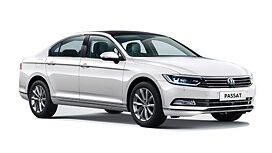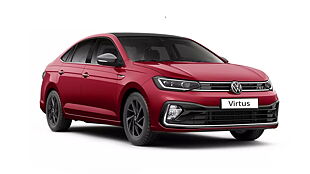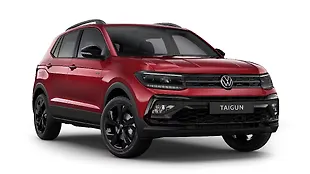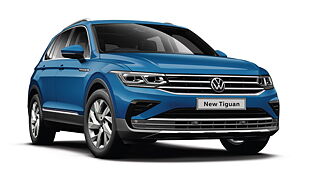Introduction

Admirers and users fondly remember the earlier generations of the Volkswagen Passat. Especially to some of us testers who had the privilege of using it as a long-term in the fleet. We agree it didn’t set the sales charts on fire (thanks to the booming SUV segment), but as a package, there was little to find fault with this sedan. And now, VW is back in the segment by re-introducing the company’s flagship sedan, and what you’re eyeing is the eighth-generation Passat that drove into the Indian market in October 2017. So what’s new? In a nutshell, it has evolved into a more complete product that’s now underpinned by the MQB platform, and is now loaded with more technology and features.
This road test will give you a detailed insight into how the new Passat behaves in aspects we believe will help you decide whether it is for you, or not. Read on.
Design and Style

A glance at the Passat is all that’s needed to know it’s a VW product. As a matter of fact, despite the current Passat having evolved so much over the last few generations, the model’s traditional look has been uniquely retained. The good thing about this is that you can make out it’s a Passat with your eyes shut! Jokes apart, there’s a sense of elegance about those straight lines that give it immense presence. On the flipside, the design can feel too conservative, especially for those looking to make a style-statement.

What lends the Passat some of its character are the numerous horizontal lines on the nose that’s heavily highlighted by chrome. These lines are further carried over to the rear section of the car through a strong shoulder crease with lots of chrome highlighting the window frames and the lower portion of this sedan. But for me, it was definitely the rear portion of the car that looked neat. It gets a smooth boot lid with smart looking tail lights and a hefty stance.

Interior

Once seated, you’ll appreciate the elegant design elements within the all-black cabin. On a personal note, I’d prefer beige interiors despite its tendency to get soiled easily since it stays cooler, and invokes a sense of spaciousness. Nevertheless, the dash and center console in the Passat looks premium thanks to silver trim highlighting the clean lines and the posh looking wooden inserts. You also get the Audi A4 inspired air-vents that cover the width of the dash which accentuate the feeling of width.

We would have loved to see another iteration of Audi’s Virtual Cockpit in here, but the Passat’s clean instrumentation with large dials look classy anyway. While ergonomics are spot on, there’s adequate space to keep your belongings on the center console, arm rest and door pads. Then there are the large front seats with firm cushioning that offer spades of support through the manually adjustable driver’s under-thigh support, electrically adjustable lumbar support, and lateral bolstering. Even headroom and shoulder room is in abundant supply.

At the rear, the bench sports good contours that hold you in place with a nice backrest angle, good thigh support, ample legroom, and adequate headroom. Occupants can also digitally set the temperature for the rear air-con vents. However, blower speed cannot be adjusted and the tall transmission tunnel limits this sedan to being a four-seater. Going ahead, while the Passat’s long windows make for some great viewing, the sun visors are a handy touch when the sun gets too bright. Now, when it comes to the 586-litre boot, it is very usable with ample depth and width. And if this isn’t enough, just yank at the two pull switches to drop the rear 60:40 seats for some added space.

Safety and Equipment

The Passat is available in two trims - Comfortline and Highline. The latter variant adds body coloured bumpers with chrome trim, R17 alloy wheels (set of 5), electric sunroof, illuminated external mirror adjustment knob and power window switches, and stainless steel scuff plates on front and rear door steps. The Highline also offers a colour multifunction display, voice command control, a 360-degree rear view camera, adaptive chassis control (DCC) and park assist.

While all safety features remain standard, the Passat gets 9 airbags, electronic stability control (ESC) with ABS, ASR and EDL, hill start assist and auto hold function. It also gets a 3-zone air-con, touchscreen infotainment system with 8 speakers, aux-in/USB/Bluetooth connectivity, massage function for driver seat, ‘Easy open’ boot lid opener (wave your leg under the bumper), tyre pressure monitoring system, and hands-free parking.

Engine, Performance and Braking

Under that long hood is VW’s 2.0-litre turbo-diesel engine whose 177bhp/350Nm of torque is laid down on the tarmac through a six-speed DSG transmission. Twist the ignition and the engine coughs to life with a reasonable amount of clatter that’s subdued within the cabin thanks to remarkable insulation. After that it was just a few minutes behind the wheel which was enough for me to conclude that the power output is nothing less than aggressive.
At slower speeds, an enthusiastic right foot will be rewarded with some wheel-spin too. But that’s not all, jab the brake and accelerator together, and the instrumentation flashes ‘launch control is activated’ - a tester’s delight! On the go, there’s a lot of grunt coming in post 1700rpm which allows it to make quick progress. With such a strong wave of torque smoothly flowing in, darting in and out of traffic gaps seems like clockwork.

Driving the Passat is always a nice experience. Even the car’s dimensions don’t intimidate you thanks to good overall visibility. What also makes the Passat a performer is the quick-shifting DSG transmission armed with six gears smartly spread across the power band, and this can be seen in the 0-100kmph sprint that takes just 9.03 seconds. The system always seems to find the right gear at the right time in a snap, and you are almost never left asking for more. Even the all-important 20-80kmph and 40-100kmph drivability tests were pulled off in a swift 5.24 seconds and 6.94 seconds.
I was found constantly flooring the accelerator to enjoy watching the needle hastily bounce off the 4500rpm limiter before it automatically upshifted. For more rev one just needs to activate ‘Sport’ mode where it races to 5000rpm before upshifting, and we also noticed that the gearbox does not hold any gear at the redline in any mode. This brings us to the modes on offer- Eco, Comfort, Normal, Sport and Individual. These modes change the character of the gearbox, steering and suspension settings. Just as you’d expect, Sport is the mode to opt for when performance is all you’re eyeing. The transmission holds a lower gear at all times to give you instant response as soon as the accelerator is tapped.

What Eco brings to the table is muted responses from the motor. As soon as you get off the accelerator pedal, the revs drop to 1000rpm and it free-wheels. While responses in Comfort are similar to Eco, the motor does not coast and revs are held at 1300rpm when one goes off the throttle. On the other hand, although Normal mode is configured to offer slightly better responses than both Eco and Comfort, it’s the Individual mode that had us going. You can mix and match the modes to get a tailor-made setup for the suspension, steering and engine response.
Ride and Handling

Let’s talk about the ride and handling now. The Passat gets Dynamic Chassis Control (DCC) which basically adjusts the damping as per the setting. With Comfort, Normal and Sport to choose from, the first two have similar characteristics. In Comfort and Normal, bumps are soaked smoothly at lower speeds and as the momentum picks up, there is some up and down movement overall. In Sport, since the suspension damping is stiffened up, one can feel the bumps on the road at low speeds. But pick up the pace and the Passat flattened our roads while exhibiting rock-solid stability with little roll, especially at high speeds. The only kink in its armor here is the suspension noise that filters into the cabin.
Similarly, the modes also alter the steering responses. So you will be able to set the steering response from being light to markedly heavier depending on your usage. In a nutshell, the steering has been geared to make the Passat easily maneuverable within city limits, while also lending it quick directional change abilities at high speeds and under hard cornering situations. It needs a special mention that the Passat doesn't feel its size or heavy around bends, and braking is more than adequate. All in all, the Passat makes for a mile muncher and can be quite the GT car.
Price and Fuel Economy

The Volkswagen Passat is offered in two variants, the Comfortline which retails for Rs 36.34 lakh, and the Highline that costs Rs 39.94 lakh (on-road Mumbai). Although this VW flagship sedan may be slightly more expensive and more conservative (looks-wise) than the Skoda Superb, it makes a strong case for itself through the long list of features and sedate styling. After putting it through our fuel efficiency tests, the Passat returned 9.75kmpl in the city and 16.64kmpl on the highway.
Verdict

If you look at it, there’s very little that goes against the Passat. For one, the ultra-conservative looks may not attract the majority of buyers. And even if one can get over that, not many are fans of all-black interiors. Plus, there’s some audible suspension noise that can get irritating, and it lacks comfortable seating for the rear middle passenger.
However, what goes in favour of the Passat is the great stance, good quality levels with premium fit and finish, the fact that it is loaded to the teeth with features, and its ability to draw a smile on your face each time you drive it. Plus, it can not only be a decent city car, but double up to be a brilliant long-distance tourer too. That’s it for now and remember to stay tuned to our reviews section for a detailed comparison of the VW Passat with the segment contender.
Pictures by Kapil Angane and Kaustubh Gandhi
Click here to know more about the VW Passat
2017 Volkswagen Passat 2.0L TDI First Drive Review
Volkswagen Passat GTE First Drive Review
Specification
| CAR NAME | Volkswagen Passat |
| Variant | Highline |
| ENGINE | |
| Fuel | Diesel |
| Installation | Front, transverse |
| Displacement | 1968cc |
| Bore/stroke | 82.5mm/92.8mm |
| Valve gear | 4 valves per cyl |
| Power | 177bhp at 3600-4000rpm |
| Torque |
350Nm at 1500-3500rpm |
| Power to weight | 114.19bhp per tonne |
| Torque to weight | 225.80Nm per tonne |
| Gearbox | 6-speed automatic |
| CHASSIS & BODY | |
| Kerb weight | 1550kg |
| Tyres (F/R) | 215/55 R17 |
| Spare | - |
| STEERING | |
| Type | Rack and pinion |
| Type of assist | Electric |
| Turning circle | 11.7m |
| BRAKES | |
| Front | Ventilated Discs |
| Rear | Discs |
| Anti-lock | Yes |
Test Data
| CAR NAME | Volkswagen Passat |
| Variant | 2.0 TDI Highline |
| PERFORMANCE & BRAKING | |
| 0-20kph | 1.02s |
| 0-40kph | 2.45s |
| 0-60kph | 3.96s |
| 0-80kph | 6.28s |
| 0-100kph | 9.03s |
| 0-120kph | 12.93s |
| 20-80kph in 3rd gear | 5.24s |
| 40-100kph in 5th gear | 6.94s |
| 80-0kph | 2.15s / 24.53m |
| FUEL ECONOMY | |
| City | 9.75 kmpl |
| Highway | 16.64 kmpl |
| Tank size | 66-litres |
| Range | 870km |
| INTERIOR MEASUREMENTS | |
| Front | |
| Legroom(Max/min) | 940/690mm |
| Headroom(Max/min) | 980/910mm |
| Shoulder room | 1360mm |
| Backrest height | 640mm |
| Rear | |
| Legroom(Max/min) | 910/660mm |
| Ideal legroom | 740mm |
| Headroom | 940mm |
| Shoulder room | 1380mm |
| Seat base length | 480m |
| Backrest height | 680mm |
| Boot (with all seats up) | |
| Length/width/height | 1180/1030/500mm |
| Loading lip height | 750mm |



























